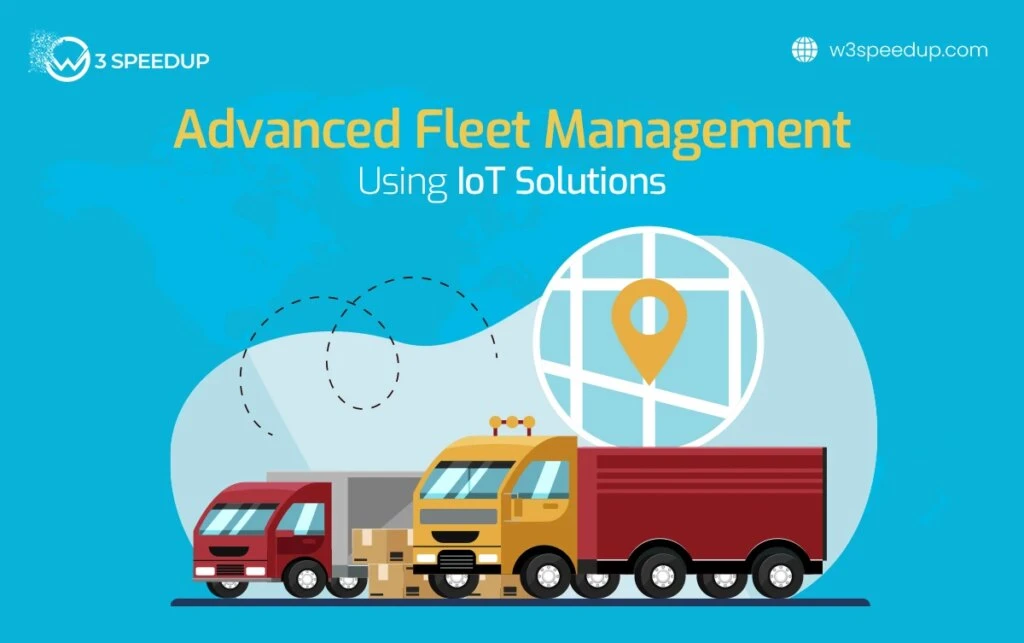The Internet of Things (IoT) is bringing about changes in industries, including fleet management. Through the connection of vehicles, drivers and fleet supervisors IoT technology is transforming how fleets function, leading to increased efficiency, safety and intelligence. This article delves into the impact of development on fleet management by showcasing its advantages, practical applications and real world effects.
The Transformation of Fleet Management through IoT
Traditionally fleet management involved overseeing vehicle locations, monitoring maintenance schedules and ensuring driver adherence to regulations. With integration these tasks are. Improved to provide real time data and valuable insights that greatly enhance operational effectiveness.
Real Time Monitoring of Vehicles. A key benefit of employing IoT fleet management is the ability to track vehicles in time. By utilizing GPS enabled devices installed in vehicles that continuously transmit location data fleet managers can monitor the whereabouts of each vehicle at any given moment.
Proactive Maintenance. IoT sensors keep tabs on vehicle performance by gathering data on engine health, tire pressure, fluid levels among factors. This collected data is analyzed to predict maintenance requirements thereby preventing breakdowns and minimizing downtime.
A transportation company can utilize maintenance to schedule vehicle maintenance before any issues occur ensuring that their fleet remains in condition and avoiding costly repairs and disruptions.
By using internet of things development services businesses can improve fleet management through optimizing routes, predicting maintenance requirements and enhancing operational efficiency.
Advantages of Internet of Things in Fleet Management
The IoT brings numerous benefits to fleet management, including cost savings, enhanced safety measures, improved customer satisfaction and a focus on environmental sustainability.
 Cost Savings
Cost Savings
By optimizing routes, reducing fuel consumption and preventing breakdowns the IoT helps fleets save money. Predictive maintenance plays a role in minimizing the need for repairs and prolonging the life of vehicles.
According to a study by Frost & Sullivan predictive maintenance enabled by technology can lower maintenance costs by up to 25%. This significant cost reduction can then be reinvested into aspects of the company.
 Enhanced Safety
Enhanced Safety
IoT technology contributes to vehicle and driver safety through real time monitoring and alerts. Sensors can identify driving behaviors like braking, speeding or sudden lane changes and promptly notify drivers.
Fleet managers receive notifications when drivers engage in practices. They can then take steps such as providing training or adjusting routes to lower risks. This proactive approach reduces accidents. Enhances fleet safety.
 Improved Customer Satisfaction
Improved Customer Satisfaction
The IoT enhances customer satisfaction by offering dependable delivery estimates.
Real time tracking enables customers to monitor the progress of their deliveries and stay informed about any delays.
For instance an online retail company can utilize technology to offer real time updates to customers regarding the status of their package deliveries. This allows customers to track their packages in time and receive alerts in case of any disruptions ultimately enhancing their shopping experience and increasing satisfaction levels.
Applications of IoT in Managing Fleets
The applications of IoT in fleet management are extensive, encompassing aspects such as optimizing routes, managing fuel consumption, ensuring compliance with regulations and monitoring impact.
 Route Optimization
Route Optimization
Through technology fleet managers can optimize routes by analyzing up to date traffic information, road conditions and delivery schedules. This helps vehicles navigate the paths reducing travel time and fuel usage.
For example a courier service can leverage IoT for route optimization when making stops. By guiding drivers along the routes this approach cuts down on fuel expenses and boosts the number of deliveries completed per day.
 Fuel Management
Fuel Management
IoT sensors keep track of fuel levels and consumption patterns within fleets enabling managers to detect inefficiencies and implement strategies for saving fuel. This does not cut down on expenses. Also decreases the environmental footprint of the fleet.
A trucking company could utilize technology to monitor fuel consumption and detect patterns of idling or inefficient driving routes. By addressing these issues the company can decrease fuel usage and emissions thus promoting sustainability.
 Compliance and Reporting
Compliance and Reporting
Regarding compliance and reporting, IoT simplifies adherence to requirements by automating data collection and reporting processes. This ensures that fleets comply with safety and environmental standards without the need for record keeping.
For instance a fleet manager can leverage IoT to automatically record driving hours, vehicle inspections and maintenance tasks. This data is secure. Easily accessible for compliance reporting purposes reducing burdens and ensuring regulatory compliance.
Real-World Impact of IoT in Fleet Management
The tangible impact of IoT in fleet management is evident through success stories across industries. These examples demonstrate the potential of technology.
In a case study involving UPS, a player in logistics, the implementation of technology has optimized its delivery operations. By outfitting its fleet with sensors, UPS can monitor vehicle performance, track deliveries in time, and optimize routes. The Pozyx Robust UWB real-time location system has played a key role in improving the precision of these tracking and optimization efforts. This initiative has resulted in enhancements in efficiency, cost savings, and customer satisfaction.
The case study on Coca Cola showcases how the company leverages technology to streamline its fleet management processes and boost efficiency. By utilizing sensors to monitor truck conditions, track fuel usage and optimize delivery routes Coca Cola has successfully cut down on fuel expenses, reduced emissions and enhanced delivery timelines.
Final Thoughts
In summary the integration of IoT in fleet management is reshaping the industry by providing real time insights improving effectiveness and prioritizing safety. Through features like maintenance, route optimization, fuel monitoring and regulatory compliance adherence IoT brings a multitude of advantages that revolutionize fleet operations. As IoT advancements continue to progress its influence on fleet management will expand further fostering innovation and sustainability within the transportation sector. Embracing solutions isn’t a wise decision for fleet managers; it’s crucial for maintaining competitiveness in today’s rapidly evolving digital environment.
 Christmas Mega Sale – Enjoy Up to 50% OFF on Every Plan!
Christmas Mega Sale – Enjoy Up to 50% OFF on Every Plan! 


